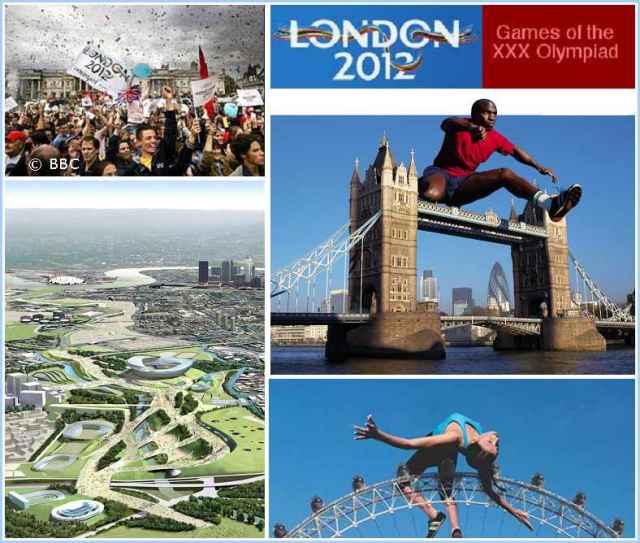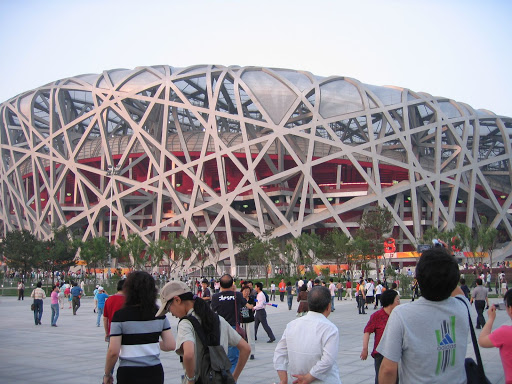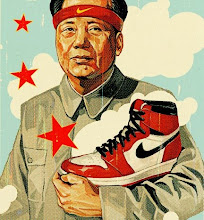In today's NY Times op-ed article A Biblical Seven Years by Thomas Friedman, China's emergence in its 7-year preparation for the Olympics is compared to the US and the 7 years since 9/11 and translated into an election contest between Obama and McCain.
Without even getting into the article itself, it is quite amazing the amount of "good press" China has gotten in the past few weeks because of the Olympics. It seems that the success of these Games have given China a better platform to showcase its achievements. Even though the human rights and Tibet issue is always raised in any general article, at least it is moved down further near the end of the article.
Here's the complete NY Times text:
After attending the spectacular closing ceremony at the Beijing Olympics and feeling the vibrations from hundreds of Chinese drummers pulsating in my own chest, I was tempted to conclude two things: “Holy mackerel, the energy coming out of this country is unrivaled.” And, two: “We are so cooked. Start teaching your kids Mandarin.”However, I’ve learned over the years not to over-interpret any two-week event. Olympics don’t change history. They are mere snapshots — a country posing in its Sunday bests for all the world too see. But, as snapshots go, the one China presented through the Olympics was enormously powerful — and it’s one that Americans need to reflect upon this election season.
China did not build the magnificent $43 billion infrastructure for these games, or put on the unparalleled opening and closing ceremonies, simply by the dumb luck of discovering oil. No, it was the culmination of seven years of national investment, planning, concentrated state power, national mobilization and hard work.
Seven years ... Seven years ... Oh, that’s right. China was awarded these Olympic Games on July 13, 2001 — just two months before 9/11.
As I sat in my seat at the Bird’s Nest, watching thousands of Chinese dancers, drummers, singers and acrobats on stilts perform their magic at the closing ceremony, I couldn’t help but reflect on how China and America have spent the last seven years: China has been preparing for the Olympics; we’ve been preparing for Al Qaeda. They’ve been building better stadiums, subways, airports, roads and parks. And we’ve been building better metal detectors, armored Humvees and pilotless drones.
The difference is starting to show. Just compare arriving at La Guardia’s dumpy terminal in New York City and driving through the crumbling infrastructure into Manhattan with arriving at Shanghai’s sleek airport and taking the 220-mile-per-hour magnetic levitation train, which uses electromagnetic propulsion instead of steel wheels and tracks, to get to town in a blink.
Then ask yourself: Who is living in the third world country?
Yes, if you drive an hour out of Beijing, you meet the vast dirt-poor third world of China. But here’s what’s new: The rich parts of China, the modern parts of Beijing or Shanghai or Dalian, are now more state of the art than rich America. The buildings are architecturally more interesting, the wireless networks more sophisticated, the roads and trains more efficient and nicer. And, I repeat, they did not get all this by discovering oil. They got it by digging inside themselves.
I realize the differences: We were attacked on 9/11; they were not. We have real enemies; theirs are small and mostly domestic. We had to respond to 9/11 at least by eliminating the Al Qaeda base in Afghanistan and investing in tighter homeland security. They could avoid foreign entanglements. Trying to build democracy in Iraq, though, which I supported, was a war of choice and is unlikely to ever produce anything equal to its huge price tag.
But the first rule of holes is that when you’re in one, stop digging. When you see how much modern infrastructure has been built in China since 2001, under the banner of the Olympics, and you see how much infrastructure has been postponed in America since 2001, under the banner of the war on terrorism, it’s clear that the next seven years need to be devoted to nation-building in America.
We need to finish our business in Iraq and Afghanistan as quickly as possible, which is why it is a travesty that the Iraqi Parliament has gone on vacation while 130,000 U.S. troops are standing guard. We can no longer afford to postpone our nation-building while Iraqis squabble over whether to do theirs.
A lot of people are now advising Barack Obama to get dirty with John McCain. Sure, fight fire with fire. That’s necessary, but it is not sufficient.
Obama got this far because many voters projected onto him that he could be the leader of an American renewal. They know we need nation-building at home now — not in Iraq, not in Afghanistan, not in Georgia, but in America. Obama cannot lose that theme.
He cannot let Republicans make this election about who is tough enough to stand up to Russia or bin Laden. It has to be about who is strong enough, focused enough, creative enough and unifying enough to get Americans to rebuild America. The next president can have all the foreign affairs experience in the world, but it will be useless, utterly useless, if we, as a country, are weak.
Obama is more right than he knows when he proclaims that this is “our” moment, this is “our” time. But it is our time to get back to work on the only home we have, our time for nation-building in America. I never want to tell my girls — and I’m sure Obama feels the same about his — that they have to go to China to see the future.




























